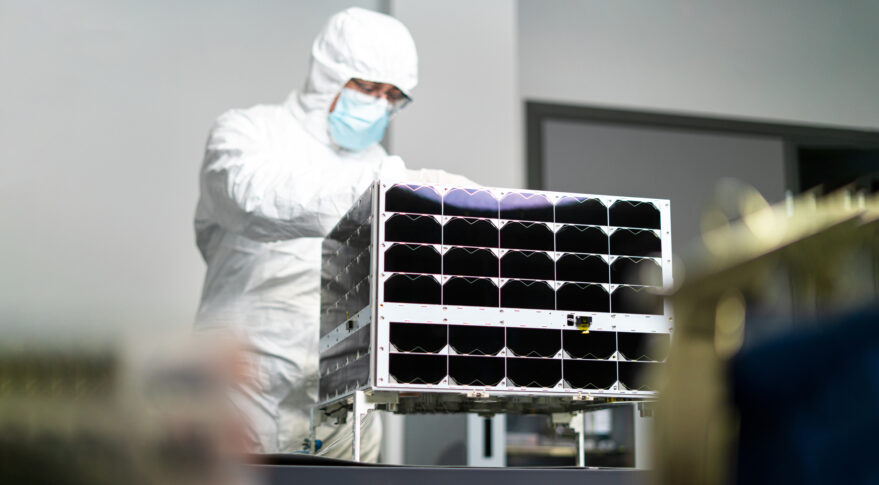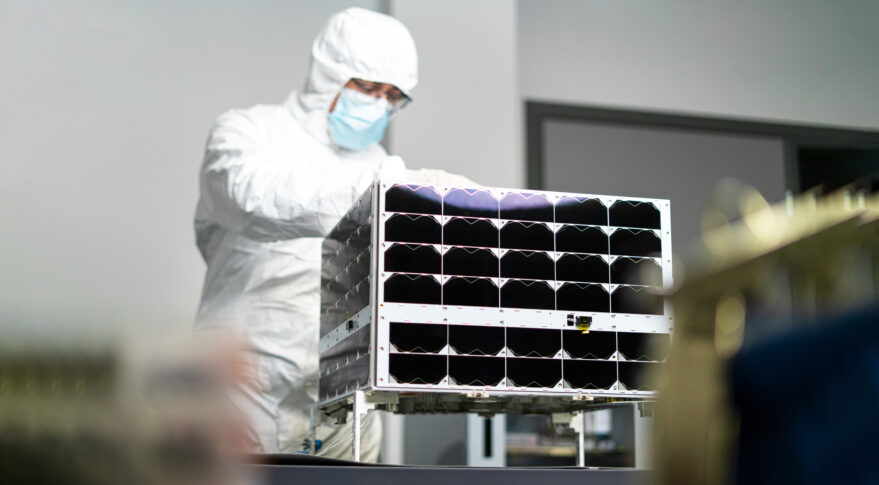
Kongsberg orders satellites for Norwegian maritime surveillance (Image Credit: Space News)

TAMPA, Fla. — Norway’s Kongsberg Defence & Aerospace has ordered three microsatellites to keep tabs on vessels operating clandestinely in the North Sea.
Kongsberg ordered the satellites from Lithuania’s NanoAvionics for a 2024 launch.
The satellites will have instruments Kongsberg has developed to detect Automatic Identification System (AIS) transponders, which all passenger ships and most ocean-going vessels above a certain tonnage must carry by law.
If these ships deactivate their AIS, Kongsberg said a separate sensor it has developed can track signals from the radars they use to avoid crashing into boats and other obstacles that are especially hard to see at night.
In a May 18 news release announcing the order, Kongsberg said the satellites’ ability to track so-called dark vessels will support Norway’s defense operations and efforts to crack down on activities including illegal fishing, smuggling and environmental crime.
The company also aims to sell maritime traffic information to commercial customers for data analysis applications.
The satellites will be operated by ground station supplier Kongsberg Satellite Services (KSAT), a joint venture with Norway’s space agency, and will use encryption software developed by Norwegian firm Eidsvoll Electronics.
NanoAvionics said the spacecraft will be based on the MP42 microsatellite bus, which at “50-kilogram-plus” is the Lithuanian firm’s largest yet as it expands out of the 10-kilogram-and-under nanosatellite class to develop larger smallsats with more capabilities.
“The agreement with Kongsberg is a perfect example of our technological capabilities and proof that adding microsatellites to our portfolio was the right move,” NanoAvionics CEO and co-founder Vytenis Buzas said.
“While nanosatellites are still in a high demand, it’s the microsatellites that offer new opportunities and room for more advanced missions and applications. The mission also demonstrates the continued strength of European space companies and agencies working together.”
NanoAvionics said its MP42 bus gained flight heritage April 2022, when it carried a payload for Luxembourg connectivity startup OQ Technology that launched on a SpaceX Falcon 9 rideshare mission.
Kongsberg said its agreement with NanoAvionics forms the basis for a larger satellite constellation to increase coverage areas, revisit times and include different types of sensors.
“We intend to expand the network with more satellites, but have not made formal decisions on this yet,” Evelyn Honoré-Livermore, system engineer and project manager at Kongsberg, told SpaceNews via email.
“We plan to cover other parts of the world, ultimately achieving global coverage. For now, we are looking at the North Atlantic and some options in the southern hemisphere.”
Honoré-Livermore said the company is considering ways to combine AIS, radio-frequency and synthetic aperture radar (SAR) sensors for future satellites.
Earth observation sensors “are also natural to explore at the next stage,” Honoré-Livermore added.
Kongsberg has not selected a launch provider for deploying its satellites.
“Our ambition is to launch the first satellite with Isar Aerospace from Andøya [in Norway] or with SpaceX, but we are not confirmed on this point yet,” Honoré-Livermore said.
Germany-based Isar is developing a small launch vehicle called Spectrum, which is slated to make its maiden launch from Andøya late this year or early next year. Kongsberg owns 10% of the Andøya Space Center in northern Norway.
Cheaper and more capable small satellites have opened up new markets for surveillance capabilities, and attracted multiple startups looking to carve out commercial businesses in this area.
U.S.-based HawkEye 360, which has a substantial foothold in this market, has also been using its satellites to detect GPS interference in and around Ukraine amid Russia’s war there.
British startup Horizon Technologies, Luxembourg-based Kleos Space and France’s Unseenlabs plan to deploy satellites in the near term to build out their maritime surveillance capabilities.








